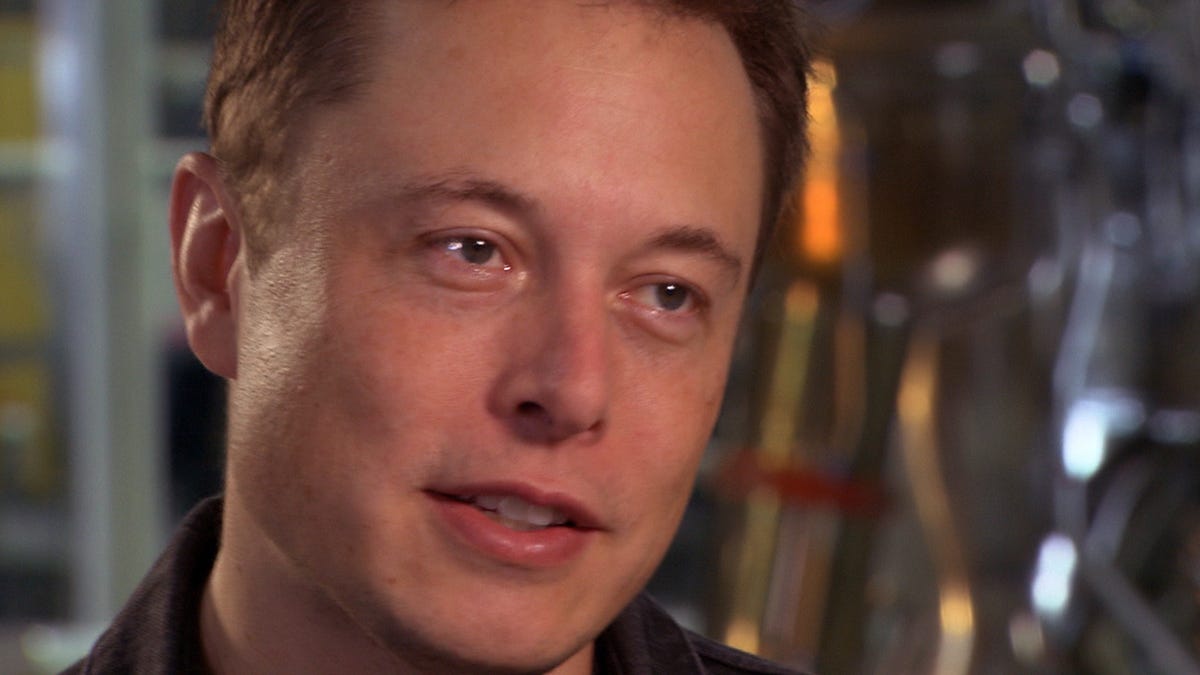How Elon Musk goes down in history with the Wright Brothers
Commentary: Will we remember the CEO as a top innovator centuries from now? "Star Trek" says yes. CNET's Eric Mack says it's too soon to know.

Elon Musk -- a name for the history books?
Once again, "Star Trek" has me thinking about the future.
But rather than the likelihood of far-off tech like warp drive or transporters, Sunday's installment on CBS All Access of "Star Trek: Discovery" has me wondering about super-entrepreneur Elon Musk's place in history. (Disclosure: CBS is CNET's parent company.)
The show, set in the 23rd century, briefly name-checked the Tesla Motors and SpaceX founder in a short list of famous inventors that also included the Wright Brothers and the fictional inventor of the warp drive.
To be remembered and revered more than two centuries from now, Elon Musk would have to achieve some pretty remarkable tasks. He certainly has ambitions -- like colonizing Mars -- that are audacious enough to place him among history's most famed innovators.
But what are the odds that we remember his name 200 years from now?
Quitting while he's ahead
If Musk decided tomorrow that he's tired of running two major companies, helping his cousins run another (Solar City) and overseeing an ever-expanding number of speculative side projects including computer-brain interfaces (Neuralink), futuristic transit (Hyperloop) and tunnels (The Boring Company), his legacy might fade rather quickly. Still, he'd have to shut down all of the above efforts, forbid anyone else from taking them on and disappear to a desert island to finally do something besides work.
The notion that Musk would go full Howard Hughes seems unlikely, though. And even if he did go away suddenly, he's also far from the only person pursuing the goals of popularizing electric cars, increasing human access to space and revolutionizing high-speed transit on (or around) Earth. Also if any of his goals were still eventually achieved by others (and I would argue none of them is there quite yet) and were to play a major role in our society, then his legacy as a popularizer and early innovator of these concepts should guarantee him at least a footnote in future history e-books, a la Hughes or Amelia Earhart.
But what would it take for him to join the ranks of the Wrights, Edison, Da Vinci or, of course, the original Tesla?
Delivering the grand vision
Musk's greatest accomplishments so far are building Tesla Motors into a truly competitive automaker and making rockets reusable. Ironically, neither of these crowning achievements would likely put him on par with the Wright Brothers or someone who invents a real warp drive.
That's not to denigrate how truly impressive his feats are. Making electric cars sexy and desirable was laughable 20 years ago, and it's still cool to watch a Falcon 9 landing, even as that becomes de rigueur. But across the grand sweep of the history of transportation innovation, these are important incremental steps rather than revolutionary breakthroughs like flight or light-speed travel.
Even if we all end up driving EVs, I think we'd probably end up remembering Nikola Tesla before Tesla Motors in the 23rd century.
If the Hyperloop or 30-minute rocket rides become the preferred choice of travel in the future, Musk probably comes close to joining the Wright Brothers in the great pantheon of innovators remembered for years to come.
But if we're also taking rocket rides to colonies on Mars, the moon and beyond as Musk hopes, then, yes, I can see Star Trek's fictional future reference becoming a reality.
If that happens, I'm sure we'll be teaching about Musk's great "Guadalajara moment" in school just like we were taught about what happened at Kitty Hawk.
But as the cliche goes, "space is hard" and there's a lot of work to be done between landing a rocket on a droneship in the ocean and landing one carrying colonists on the Red Planet. There's also plenty of questions to answer, like: What about the toilet paper?
If Musk's name is associated with a successful off-Earth colony when it finally happens, though, he will earn much more than a footnote in history.
Crowd Control: A crowdsourced science fiction novel written by CNET readers.
Solving for XX: The tech industry seeks to overcome outdated ideas about "women in tech."

